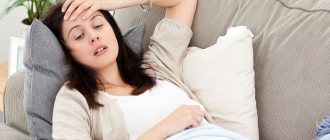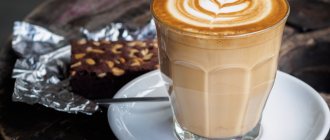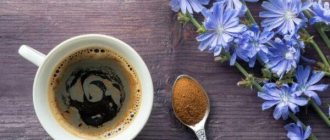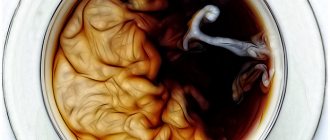It is believed that a coffee drink drunk shortly before going to bed will cause a surge of strength and vigor, and will also be an excellent remedy against drowsiness. However, there are many people for whom coffee either does not have an invigorating effect, or, on the contrary, acts as a mild sleeping pill. That is why you should be attentive to your own individual characteristics, and also take into account existing diseases in order to make the right decision regarding drinking coffee in the evening.
So, why does coffee sometimes make you sleepy, and how to properly drink this drink before bed so as not to harm your health?
How does coffee affect sleep?
Content
The vast majority of people note a surge of vigor and energy after drinking a cup of coffee. This is explained by the fact that the drink contains a large amount of caffeine, a substance that blocks the production of melatonin, the so-called sleep hormone. Therefore, after drinking coffee, after about half an hour, a person begins to notice a surge of strength, drowsiness goes away, and strength appears to perform various tasks.
People who drink little or no drink throughout the day are particularly sensitive to slower melatonin production. It is not recommended for them to drink coffee before bed. The only exception is when you need to work late, but are overcome by drowsiness. In this case, the person will get about a couple of hours of energy to complete all urgent matters. However, you should not overuse this technique, as this may subsequently negatively affect your well-being during the daytime.
How to stay awake: Traditional medicine tips, special remedies, expert advice and music
Truly heavy caffeine users may benefit from a caffeine detox to reduce their caffeine tolerance.
Firstly, it is not advisable to consume caffeine too late in the afternoon (). If you want to go to bed by 10 pm, then you should probably avoid caffeine after 12 pm. If you consumed 200 mg of caffeine at noon, with a caffeine half-life of 5.7 hours, you still have more than 50 mg in your system at 10 p.m.
Additionally, this also doesn't take into account any caffeine you consumed earlier in the day, which is also still in the process of being absorbed by the body. If you have a high sensitivity or low tolerance to caffeine, you will likely need to limit your caffeine intake even sooner.
Secondly, know your personal safe daily dose of caffeine and avoid overconsumption. For most people, this amount is between 300-400 mg per day. Insomnia is one of the leading symptoms of caffeine overdose and can prevent you from getting the sleep you need.
Lastly, don't consume caffeine as soon as you wake up in the morning. Research shows that caffeine works best when consumed 1-2 hours after waking up. When we wake up, our bodies are in a natural state of awakening.
If you wait and consume caffeine when you wake up, it will be much more effective in helping you feel alert and productive. Plus, it will help keep you from consuming too much caffeine, which will interfere with your sleep the next night.
Causes of drowsiness after coffee
There is a small percentage of people in the world for whom coffee does not have an invigorating effect, but acts exactly the opposite. After drinking a cup of drink, even before going to bed, they begin to feel drowsy. Why do they feel so sleepy after drinking coffee? The fact is that their body does not absorb caffeine; this substance does not affect the production of melatonin in any way. And at the same time, other microelements, of which there are large quantities in the drink, have a calming effect, causing relaxation and slight drowsiness. Theobromine, a substance found in the core of coffee beans, has a pronounced effect on such people. It has a calming and mild hypnotic effect on the body. This is why you are likely to feel relaxed after drinking a cup of coffee.
Another category of people for whom the drink does not interfere with sleep are avid coffee drinkers who drink large amounts of high-strength coffee per day, at least 5 cups. Their body is already accustomed and adapted to the effects of caffeine. Therefore, one more extra cup will not cause them to suffer from insomnia.
How to fall asleep after coffee at night
When the coffee has already been drunk, and all urgent matters have suddenly taken care of themselves, you can help yourself to fall asleep and have a good night's sleep despite the doping you have taken. A glass of cool drinking water helps quickly eliminate caffeine from the blood. Walking in the fresh air at a fast pace is also effective: physical activity also reduces the time it takes for the substance to be eliminated from the body.
Advice for the future: if life is not a joy without coffee taste and aroma, you do not recognize instant coffee, but staying awake all night is not part of your plans, you can drink decaffeinated coffee before bed. Decaf contains only 1-2% of the active substance from its original amount, while the taste practically does not suffer.
Coffee helps you stay awake, but you shouldn’t abuse this remedy. It is necessary to resort to doping in exceptional cases and it is better to alternate it with green and black tea so that the effect does not disappear.
Is it possible to drink coffee before bed?
You should not drink coffee before bed unless absolutely necessary. This is a tonic drink that can disrupt sleep and wakefulness, cause increased blood pressure and severe headaches. If it is impossible to refuse the drink, it must be made weak and be sure to dilute it with a large amount of milk or cream.
The only case when coffee can be of benefit before bed is if a person has not rested for a long time, but he definitely needs to stay alert. Then a cup of coffee is drunk. And you should go to bed right away. Caffeine will begin to act depending on the characteristics of the body - after 20-40 minutes, this time will be enough for the brain to relax a little.
The person will wake up refreshed and will be able to continue doing his job. This technique is also indispensable for those who often have to be in different time zones. But you should not abuse this coffee drink unnecessarily, as it greatly wears out the body.
The effect of coffee on human biorhythms
Once in the stomach, caffeine does not begin to act immediately, but after 20 minutes. The Japanese even found that those who drink a cup of coffee during the day and immediately go to bed before the effects of caffeine appear, wake up refreshed after 20 minutes and remain energetic for the rest of the day.
The same thing happens in the evening. Caffeine suppresses the production of the hormone melatonin, which promotes the transition to deep sleep. Even if a person manages to fall asleep, it is a quick sleep; after 20 minutes it is interrupted, and so on several times a night. That is, because of drinking a cup of coffee too late, you may either not fall asleep at all, or spend the whole night on the verge of sleep and wakefulness.
The degree of impact of caffeine on the human body varies from person to person. According to scientists, in 3-10% of people, the nervous system does not react to caffeine at all; they are able to sleep regardless of the time they drink coffee. Others feel the effect of the alkaloid for 2–7 hours.
This is the reason for the well-known recommendation not to drink coffee after 18 hours (at least during the last 4 hours before bedtime). The authors of medical articles simply provide average data. In fact, a cup of coffee will not harm some people, even if they drink it 2 hours before bedtime; for others, it is better not to drink the drink after 15 hours.
Those who drink coffee in the evening in order to overcome drowsiness and work should take into account that caffeine shifts biorhythms by about 40 minutes. If you don’t sleep the same 40 minutes longer in the morning, you will feel weak all day and unable to concentrate. Continuing to suppress drowsiness with the help of coffee, a person risks that temporary malaise will develop into the scourge of office workers - chronic fatigue syndrome.
When should you not drink coffee before bed?
Coffee before bed should not be consumed in the following cases:
- If a person does not drink it at all, or limits himself to 2 cups of a weak drink per day.
- In the presence of high excitability of the nervous system.
- If you have constant problems falling asleep, your sleep is short, light and superficial.
- For problems with the cardiovascular system, when a person suffers from migraines and regular increases in blood pressure to high levels.
- During adolescence. If you really want, you can replace regular coffee with barley or chicory.
- If you have kidney problems. Coffee is a diuretic, and a diseased organ does not need extra stress.
- People with gastrointestinal diseases need to reduce their drink consumption as much as possible, and not only in the evening. A sour taste can cause increased production of hydrochloric acid, so along with insomnia from overexcitation, severe heartburn will prevent a person from falling asleep.
Why does instant coffee make you sleepy?
This situation is explained by another insidious aspect - coffee addiction. We often do not believe that coffee has a negative effect on our body. Numerous statistical surveys prove that after a long-term cessation of drinking coffee, work efficiency noticeably increases and a more restful sleep is achieved. Interestingly, these same people were confident that they had healthy sleep even before they gave up coffee completely.
Summarize:
Coffee ruins the sleep of millions of people around the world! And many people don't even know about it. What should a fan of this ancient drink who is concerned about his health do? Give up coffee? No!
In order to have a restful and healthy sleep, it is not necessary to completely give up your favorite drink. It is enough to reduce its consumption to 1 cup per day, before lunch. And your sleep will be in perfect order!
No reviews
The expected effect of a cup of coffee is vigor in the body, increased performance and the desire to wake up quickly after a night's sleep. But it happens that the desired action does not happen. And surprisingly, after a fragrant drink, you feel an uncontrollable urge to sleep. If this happens rarely, a person may not pay attention to this fact. But in the case of a constant phenomenon, people begin to ask questions about why they want to sleep after coffee, whether this is normal and what to do. After understanding the situation and consulting with a doctor, it happens that a person excludes caffeine-containing drinks from his diet.
Doctors' opinion
You shouldn’t drink coffee before bed – this is the verdict of most doctors. Still, this is an invigorating drink, and the percentage of people on whom it has a calming effect is not so large.
If drinking a coffee drink has become a habit and a person cannot give it up even in the evening, experts recommend adhering to some rules:
- The last cup should be drunk no later than 6 hours before going to bed. The reason here is as follows: after entering the body, caffeine begins to act after 20-40 minutes, and its invigorating effect ends after about 5 hours. That is why by the time you need to go to bed, the invigorating effect of caffeine on the nervous system will end.
- Replace regular coffee with chicory or barley analogue. Both drinks do not contain caffeine, have a beneficial effect on the gastrointestinal tract and cardiovascular system, saturate the body with useful substances and have a general strengthening effect. Chicory and barley coffee, drunk shortly before going to bed, will not increase the body's excitability, but will bring tangible health benefits.
- If you can’t give up strong coffee in the evening, you should drink it in combination with milk or cream. A good solution is to give preference to Americano or cappuccino, but rich espresso is better left for the morning.
- Before bed, when the effect of the coffee you drank earlier begins to wane, you can drink warm milk with honey, take a relaxing bath with salt or lavender essential oils, do a light foot massage, or read a book. All these tricks will help you fall asleep quickly while the concentration of caffeine in the body decreases.
- Another important point. Shortly before bedtime, you are allowed to drink only 1 small cup of a weak drink. The fact is that coffee is a weak diuretic, so there is a risk of frequently waking up in the middle of the night to empty your bladder. Sleep will be restless and shallow, and in the morning the person will feel weak and exhausted.
- You shouldn’t drink coffee every evening; if you really want it, then drinking it a couple of times a week is acceptable. If you constantly drink coffee at night, this will lead to a worsening of biorhythms, when the process of falling asleep and staying awake will be blurred. A person will suffer from the fact that he cannot fall asleep for a long time, and in the morning there will be severe problems with awakening. The nervous system will not rest normally, which can subsequently lead to various heart and vascular diseases.
Taking into account all the above recommendations, you can organize the consumption of coffee drinks in such a way that they do not affect sleep, but at the same time bring pleasant emotions to coffee lovers. It is extremely important to listen to your own feelings, and if negative manifestations occur, either reduce the amount and strength of the drink you drink, or completely abandon it in favor of caffeine-free analogues.
The effect of caffeine on a person's sleep may vary and depend on many factors. The best option is not to abuse coffee before bed, drink analogues or a weak drink. Then a person will not suffer from insomnia and a feeling of exhaustion in the morning and at the same time will be able to enjoy the taste of his favorite coffee, regardless of the time of day.
How does coffee help you stay awake?
There are numerous legends about the history of the appearance of the coffee drink, one of which claims that Ethiopian goats contributed to the discovery of the tonic effect of coffee. The shepherds noticed that the animals who tried the coffee fruits, lose weight in a week with cappuccino coffee, behave more cheerfully than other goats. Trees with invigorating fruits were discovered in Ethiopia in the Kaffa region. The word “coffee” was derived from the name of the region.
The Arabs who conquered Ethiopia began to consume coffee beans in their raw form. Ground raw fruits mixed with fat and rolled into balls were eaten. Such tonic food was usually taken by nomads and travelers on a long journey through the Arabian deserts. Food, wall clock coffee dynasty containing nut nutrients and caffeine, contributed to satiety and gave vigor.
Caffeine is prized because it combats sleep and fatigue, but it can be a double-edged sword.
Caffeine can actually keep people from falling asleep quickly and getting a good night's sleep (), which means you need more caffeine the next morning to feel energized. So it's a vicious circle - the caffeine user has to drink more, such as coffee, the next day after consuming it before bed the day before.
Drinks for a sound sleep
There are many drinks that can help you fall asleep quickly. As a rule, they contain natural ingredients and are not harmful to health. These include herbal infusions such as chamomile, lavender or valerian. You can add milk and honey to taste. The pleasant aroma has a relaxing effect on the nervous system and helps you to fully rest during the night.
Fermented milk products such as fermented baked milk, kefir, and yogurt not only promote sound sleep, but also benefit the intestinal microflora.
A milkshake with banana and almonds will help relieve muscle tension and get in the mood for sleep; it is rich in magnesium and potassium, which normalize cardiac activity.
The boost of energy received from a cup of coffee is short-lived, but problems with sleep after such a drink can last until the morning. For proper rest, it is better to drink a relaxing drink that does not harm your sleep, take a walk and ventilate the room. After 7-8 hours of full sleep, the body will not need emergency recharging.
Dangerous situations - when to call a doctor
Sometimes you want to sleep after coffee for more serious reasons that require treatment. The most common is dehydration. Someone thinks that it is easy to eliminate it - drink water and everything will be restored. Not really. Fluid loss entails the transfer of fluid from cells to the intercellular space.
At the same time, the spinal cord and brain suffer - they decrease in size and neurons die en masse. Returning water to cells is not so easy. To do this, it is necessary to create certain conditions, and to act slowly and carefully so as not to provoke cerebral edema.
Infectious diseases
Epstein-Barr virus is a dangerous infectious disease of a viral nature that is associated with many processes in the body that are difficult to treat. For example, malignant tumors, lymphogranulomatosis of the kidneys, multiple sclerosis and immunodeficiency conditions.
It all starts with chronic fatigue - this is the easiest symptom that can be easily detected after drinking a cup of coffee: a person becomes sleepy for no apparent reason. The virus affects more than 50% of the world's population, so in case of suspicious phenomena it is necessary to contact a specialized laboratory and conduct a blood test.
Caffeine overdose
Does coffee help you stay awake if you drink a lot of it in a short period of time? It doesn’t help, since an overdose of caffeine has symptoms similar to poisoning:
- nausea or vomiting;
- headache or dizziness with loss of consciousness;
- hand tremors;
- sleepy state.
To relieve symptoms, you need to drink water in small portions for an hour to reduce the concentration of the alkaloid and gradually remove it through the kidneys. Next, drink the sorbent. In case of severe poisoning, the person is taken to the hospital and placed on a glucose drip.
Liver failure
Coffee is considered a beneficial drink for the liver; as a result of regular consumption, you can avoid the consequences of viral hepatitis, improve the flow of bile and avoid the formation of gallstones. Caffeine from the beans is beneficial in small amounts for cirrhosis and liver cancer.
In case of diseases of the liver parenchyma, it is better to drink brewed green ground grains - they contain more vitamins and do not contain fried essential oils.
With liver failure, caffeine will circulate in the blood longer and be broken down more slowly in the liver, which will lead to exhaustion of the nervous system. The body will react with restless, heavy sleep. For liver diseases, you need to drink the drink in small dosages - no more than 1 - 2 cups per day.
Poor adrenal gland function
Adrenal fatigue syndrome affects 80% of the population. It has even been called the disease of the 21st century. The adrenal glands are a paired organ of the endocrine system that produce the stress hormone adrenaline. If they malfunction, the following symptoms appear:
- body aches as with a viral disease;
- the need to eat sweet and salty foods;
- constant feeling of fatigue, low energy level;
- weight gain.
The functions of the adrenal glands are closely related to the hypothalamic-pituitary system and are a single whole in the regulation of body functions.
By stimulating the central nervous system, caffeine affects the functioning of the adrenal glands, thereby depleting them.











